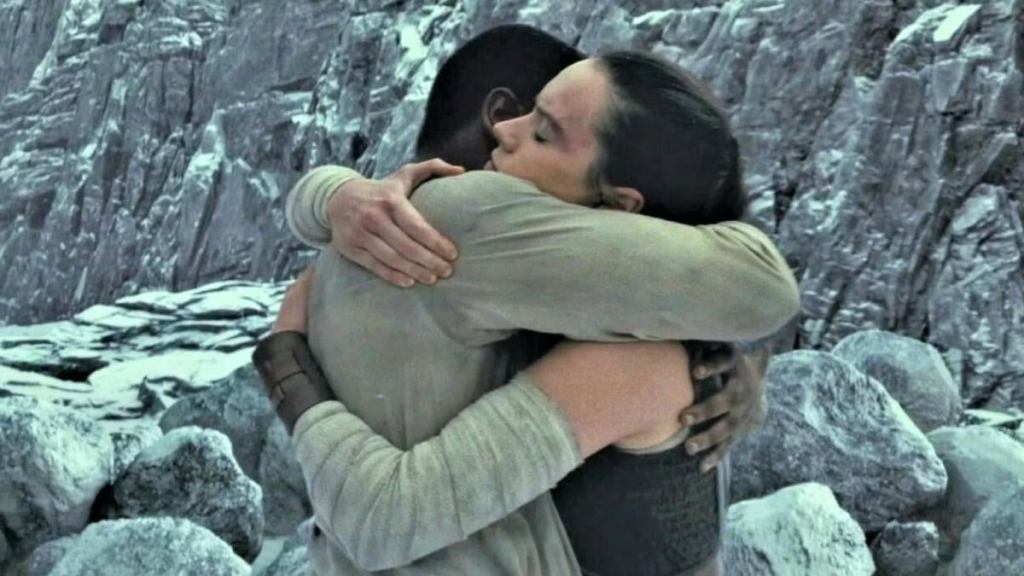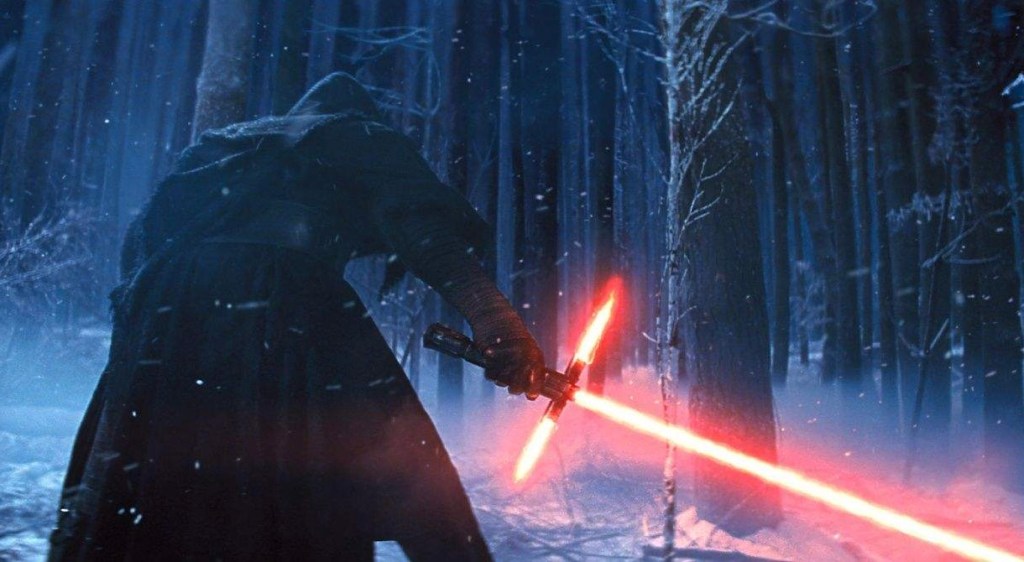Star Wars: Episode VIII — The Last Jedi premiered on December 15, 2017, and the franchise has never been quite the same since. The movie was divisive in its time and remains an object of criticism to this day — even if other Star Wars movies are hated even more. Seven years later, taking a broad look at the response to this movie can illuminate the course Star Wars has taken and help us speculate about where it will go next.
Videos by ComicBook.com
It’s not uncommon to hear fans generalize these days, saying that the sequel trilogy as a whole is bad, so it’s easy to forget that Episode VII — The Force Awakens met with an overwhelmingly positive response from critics and casual moviegoers. The long-awaited sequel was lauded for revitalizing the franchise, and for drawing attention forward rather than back, as so many prequels had done. In hindsight, fans dislike that The Force Awakens had so much in common with A New Hope, among other critiques. Back in 2017, however, The Last Jedi had a lot to live up to.
Unlike its predecessor, The Last Jedi did not borrow heavily from The Empire Strikes Back, setting out to tell its own tale. It is set largely on a fleet of Resistance ships, where General Leia’s organization is fleeing the First Order. It also follows Rey on a quest to find Luke Skywalker and gain a deeper understanding of The Force, while a C-plot follows Finn, Rose and BB-8 on a fruitless attempt to sabotage the First Order.
[RELATED: New Star Wars Rumor Reveals Lucasfilm’s Future Movies Hinge on Rey]
Divisive is an Understatement
Movies are often labeled “controversial” if there’s a variety of different responses to them, but rarely is the range as wide as that of The Last Jedi. While some Star Wars fans hate this movie with a fiery passion, many others love it just as hard. In 2017 and 2018, it was not uncommon to hear this movie touted as the best Star Wars movie since Return of the Jedi. In fact, the reviews from professional critics were skewed overwhelmingly positive – The Last Jedi has a 91 percent positive score on Rotten Tomatoes with an average rating of 8.1 out of 10.
This ostensibly positive response only seemed to infuriate the movie’s detractors more online. There were review-bombing campaigns, vote-brigading in online polls, and some even created social media bots to amplify their negative opinions. In the years that followed, many critics have speculated that these kinds of tactics successfully fooled the studios into believing The Last Jedi was hated more widely than it truly was, perhaps influencing some of the decisions that followed.

Bigotry
It’s undeniable that sexism, racism and general bigotry played a huge role in the negativity around The Last Jedi. Some fans were already grumbling about the trilogy’s protagonists being a woman and a Black man, and this movie introduced Rose (Kelly Marie Tran) as another leading protagonist. Sadly, outrage at these casting choices led to extreme harassment for the actors playing those characters – and others – changing the way franchise stars interact with fans for years to come.
the studios have been accused of acquiescing to the “vocal minority” of fans when it comes to this movie, but thankfully women and people of diverse races have continued to get roles in the Star Wars franchise. Still, we can’t say that this had no lasting impact on the franchise – John Boyega famously complained that he felt his character’s role in the final movie was minimized, while Tran’s character was left out altogether. Meanwhile, there could be many other talented actors, crew and creators who chose not to spend their time on Star Wars due to this kind of vitriol.
Fan Theories
Another broad reason often given for the blowback to this movie is the prevalence of fan theories. After The Force Awakens, many fans had developed very detailed theories about what would come next and had become attached to those stories, expecting to see them come true. If they didn’t, they were left disappointed, feeling that the movie had failed to follow through on its set-up. This was particularly true for those who believed Rey’s parents had been Force-users, and those who believed they had figured out the backstory for Supreme Leader Snoke.
In both of those cases, the revelations in The Last Jedi were hastily reversed in The Rise of Skywalker. The results of those reversals are hard to track, but in general, The Rise of Skywalker was unsatisfying to most fans, whether they loved or hated The Last Jedi. The franchise hasn’t seen a reversal or retcon quite like these since then, and hopefully it never will again.

Looking Ahead
In retrospect, the most surprising development in Star Wars over the last seven years is a return to prequels and “interquels,” with a refusal to look forward. The sequel trilogy started strong and drew in record-breaking audiences because it promised to advance the story, rather than building backstory or putting on episodic spectacles.
Since 2019, we’ve been flooded with new Star Wars content – primarily TV streaming series released directly to Disney+. However, most of these take place years before The Force Awakens, including The Mandalorian, The Book of Boba Fett, Obi-Wan Kenobi and so on. Even the currently-running Skeleton Crew takes place in this part of the timeline.
The studios have announced plans for movies that take place after The Rise of Skywalker, but progress has been slow and faltering. This year, they announced that Daisy Ridley would reprise her role as Rey in Star Wars: New Jedi Order, but back in October the screenwriter left that project and the studio set out to look for a new one. With the script still underway, there’s no telling when we might see this part of the timeline for ourselves. Other plans to take the story ahead are even more nebulous.
That’s not to say that prequels are a bad choice for Star Wars – the franchise’s worldbuilding could use all the help it can get, and the past offers more chances for Jedi to participate in the story. Still, for the series to recapture the energy and fervor it had between The Force Awakens and The Last Jedi, it will need to promise something new and exciting once again. To do that, it needs to be bold enough to risk criticism and to stay the course even when things get rough.








